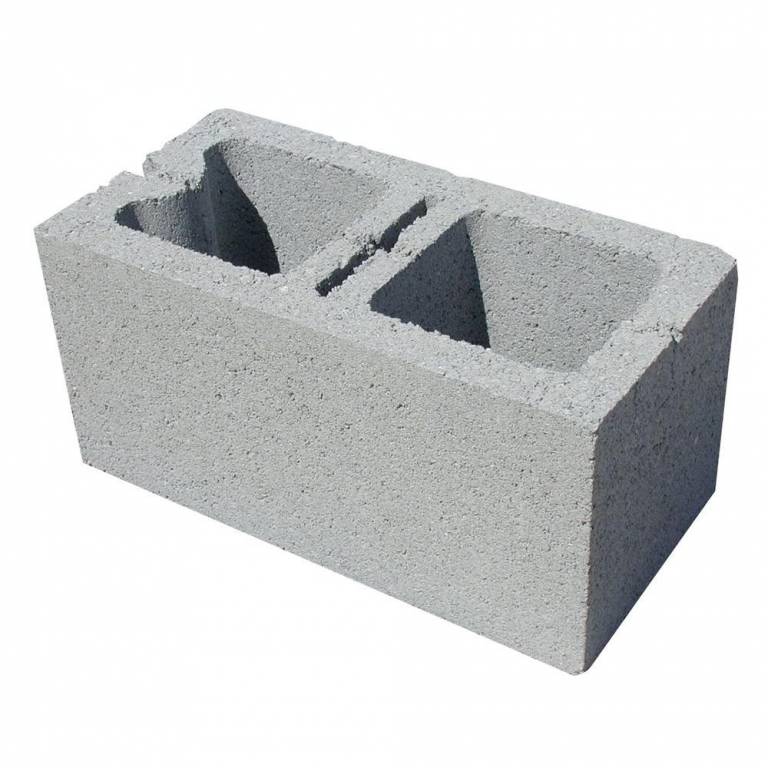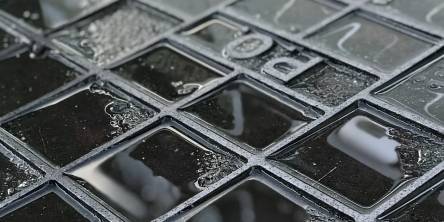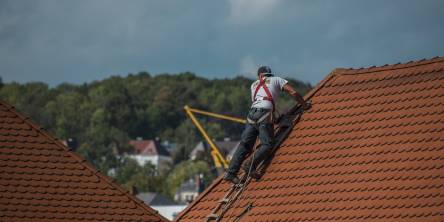Types of Concrete Blocks used in Construction Industry

Everyone knows that concrete building blocks are primarily used as a building material in the construction of homes, offices, skyscraper, and so on. Basically, they are concrete Masonry units that are used in the construction industry to form a concrete block structure.
These concrete building blocks are basically made up of concrete and aggregates. Sometimes, these blocks can also be made from sand and fine gravel mixed with cement and aggregate for high-density blocks. Moreover, you can make expanded clay aggregate blocks which are much lighter in weight compared to other building blocks.
However, here are the different types of concrete blocks used in the construction industry.
Hollow Concrete Blocks
Such type of blocks is produced using lightweight aggregate with a certain design load depending on where it will be used. According to a study, concrete hollow blocks have voids of 1/4 its gross area and solid area and the solid area should not be less than of its area.
There are basically two types of concrete hollow blocks: load-bearing concrete hollow blocks and non-load bearing concrete hollow blocks. Hollow concrete blocks are available in many different sizes like 100x200x400mm, 200x200x400mm, 150x200x400mm and many more.
Aerated Autoclaved Concrete Blocks (AAC)
Aerated autoclaved concrete blocks are much lighter. They are basically a bigger version of bricks. They are mostly made with the same ingredients as bricks but with a different composition for cost-cutting.
Aerated autoclaved concrete have reduced the overall steel consumption by 15% and concrete consumption by 10%! Moreover, these blocks are not only cost effective but are also known to save construction time and are also adaptive to various surfaces along with properties like fire resistant, and many more.
Concrete Bricks
These are basically small rectangular blocks that are arranged and piled systematically to create a rigid wall. These concrete bricks are made up by heating clay or concrete. These type of bricks are generally used in building fences and facades.
Solid Concrete Blocks
These blocks are bigger and denser than normal concrete blocks as they are manufactured to be strong and heavy from the naturally dense aggregate. These concrete blocks are just like the ordinary blocks but are way costlier and heavier and can withstand more forces.
Expanded Clay Aggregate Solid Construction Blocks
This type of blocks are made from expanded clay aggregates which are light in weight having a dry density up to 750 kg/m3 according to a density calculator. Expanded Clay Aggregate, ECASOLID CONSTRUCTION BLOCKS are masonry units manufactured using Expanded Clay Aggregate, ECA, Class F fly ash and Cement. They are used for non-load bearing wall masonry units. This means the blocks made from this aggregate will be not only light in weight but will reduce structural load by 40-50%. Expanded clay aggregate blocks also offer excellent thermal insulation properties along with excellent sound or acoustic insulation.
ECA Solid Construction blocks though are a premium segment of solid green construction blocks, are also economical compared to other construction blocks due to several reasons. These ECA concrete blocks are easy to modify as they can be carved, drilled, nailed and shaped easily. Design flexibility along with the concealed or conventional wirings and pipes can also be installed easily. They are easily coated with plaster or paint to decorate the walls as required. Hence, it saves overall construction cost where in the mortar expense is reduced to 70 % in place of conventional blocks available in the market. The exciting thing is that coping vertically or horizontally is NOT required till 10 feets of masonry finally enabling saving of reinforcement costs. It finally yields to an easy installation with regular cement mortar.
Moreover, these blocks are also fire resistant and resistant to water absorption as well. They also offer no reduced shrinkage and a superior fire and chemical resistance adding to several advantages including durability, versatility, speed and ease-of-use as well as cost benefits and environmental considerations.
Lintel Blocks
As the name suggests, these blocks are specially made to use in preparation of lintel beams. These blocks are produced in such a way that serves as a Masonry unit along with formwork itself.
Lintel blocks have deep grooves to put reinforcing bars into it along with concrete. These will serve as a permanent formwork system for the lintel beam member. Most builders find lintel blocks useful and efficient as it serves two different purposes into one!
Paving Blocks
Paving blocks are commonly used as a decorative method of creating pavement. Paving blocks are just a rectangular or square box which is made up of reinforced concrete.
Such type of blocks is used in parks, walk aways, and in parking areas.
Concrete Stretcher Blocks
Concrete stretcher blocks are similar to corner blocks which are used to combine with Masonry units. The only difference is that these blocks are laid parallel with respect to the face of the wall.
Along with that, these blocks come up with reinforcing bars and approved mortar and adhesive material
Similar Articles
Learn how a tidy home boosts mental health, reduces stress, improves productivity, and enhances well-being with simple, practical cleaning tips.
Have you ever harboured dreams of constructing your dream home filled with bespoke designs, carefully selected fittings and high-quality finishes? Have you ever fretted over the durability, aesthetics, and overall quality of your construction project? Are you constantly in search for the perfect balance between beauty and strength?
Cockroaches are one of the most common pests found in homes and businesses, and they are known for their resilience and ability to thrive in even the most unsanitary conditions. These pests can quickly infest kitchens, bathrooms, and other areas, spreading bacteria, allergens, and other harmful pathogens.
A well-maintained yard drainage system is key to preserving the beauty and health of any property. Poor drainage can lead to standing water, soil erosion, and even foundational damage to structures over time.
Keep your seaside home in top shape with these 4 expert tips! Learn about weatherproof materials, smart maintenance, and managing coastal challenges effectively.
Explore the future of roofing! Discover energy-efficient materials, smart systems, and sustainable designs reshaping modern home construction trends.
HVAC stands for heating, ventilation, and air conditioning. These all-in-one systems keep your home comfortable and improve air quality throughout a building. Often used in commercial buildings, HVAC units are increasingly used in residential buildings.
Safeguard your home after storms with timely roof repairs. Detect damage early, choose durable materials, and rely on a pro for lasting protection and peace of mind.
Learn how to balance a clean home and family life with these 6 practical tips to manage clutter, involve kids in chores, and set realistic expectations.










